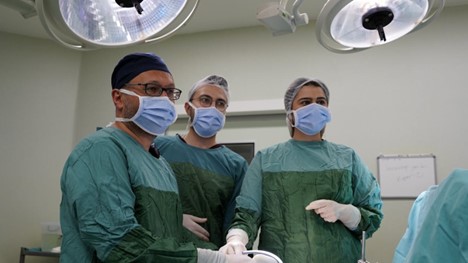Body Detox: Uncovering Truths about Toxins and Pollutants
In our modern world, we are constantly exposed to various toxins and pollutants that can have detrimental effects on our health. From air pollution to contaminated water and chemical-laden food, it’s important to understand the impact these substances can have on our well-being. Fortunately, advancements in technology and medicine have made it possible to test for these toxins and pollutants in our bodies, allowing us to take proactive steps towards minimizing their effects. In this blog post, we will explore the significance of testing for toxins and pollutants, the available testing methods, and how this knowledge can empower us to make informed decisions about our health.
The Need for Testing:
The pervasiveness of toxins and pollutants in our environment demands that we stay vigilant about our health. Exposure to harmful substances can lead to a wide range of health issues, including:
- respiratory problems
- hormonal imbalances
- neurological disorders
- cancer
By undergoing testing, we can identify the presence and levels of toxins in our bodies, providing a foundation for targeted interventions and lifestyle adjustments.
Common Testing Methods:
- Blood Testing: Blood tests can assess the presence of heavy metals, pesticides, herbicides, and other harmful chemicals in our bloodstream. They provide valuable insights into our body’s toxic burden and help determine the appropriate treatment or detoxification protocols.
- Urine Testing: Urine analysis is a commonly used method for measuring the excretion of toxins and pollutants from the body. It can identify levels of heavy metals, environmental toxins, and certain metabolic byproducts, offering a comprehensive overview of our toxin exposure.
- Hair Analysis: Hair strands can act as a historical record of our toxin exposure over time. Hair analysis tests can detect heavy metals, drug metabolites, and other environmental pollutants, providing a long-term perspective on our body’s toxic load.
Choosing the Right Testing Approach:
When considering testing for toxins and pollutants, it’s essential to consult with healthcare professionals or functional medicine practitioners. They can guide you in selecting the most appropriate testing method based on your:
- symptoms
- concerns
- medical history
Moreover, they can interpret the test results and create personalized strategies to address any identified issues.
Taking Action:
Testing for toxins and pollutants is just the first step towards a healthier life. Once armed with the knowledge of your body’s toxic burden, you can take proactive measures to reduce exposure and support detoxification. These may include:
- adopting a nutrient-dense diet
- engaging in regular exercise
- minimizing the use of household chemicals
- considering targeted supplementation or detox protocols under professional guidance
The Importance of Prevention:
While testing for toxins and pollutants is crucial, prevention is equally vital. By being aware of potential sources of contamination and taking preventative measures, such as:
- using air and water filters
- choosing organic foods
- opting for natural cleaning and personal care products
we can significantly reduce our exposure to harmful substances.
To learn more, click here and check out this summary from Life Extension.
By taking action and adopting preventative measures, we can proactively safeguard our health and strive for a toxin-free life. Discover the transformative potential of the Screening Test offered by the Asher Longevity Institute, designed to enhance your well-being and empower you in safeguarding against age-related ailments. Elevate your health and optimize treatment outcomes through this cutting-edge approach.




